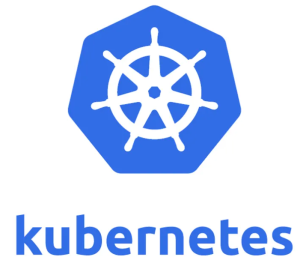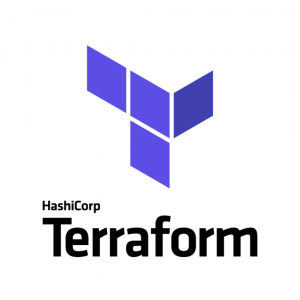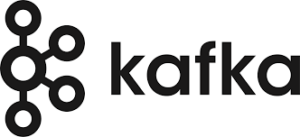Importance of Cloud Cost Optimization Tools

Cloud cost optimization open source tools are software solutions that assist organizations in managing, monitoring, and reducing their cloud service expenses. These tools offer insights into resource usage, highlight unnecessary spending, and provide recommendations for cost optimization while maintaining performance. The functionality of these tools varies, but they generally include features like cost visibility, budgeting, forecasting, and real-time expense monitoring.
- Cost Visibility: These tools improve transparency by breaking down cloud costs by service, team, or project, allowing organizations to understand where their money is going and identify opportunities for savings.
- Waste Reduction: They help pinpoint underutilized or idle resources, enabling organizations to eliminate unnecessary costs, which can significantly impact cloud budgets.
- Informed Decision-Making: By offering detailed analytics and insights, these tools empower teams to make data-driven decisions on resource allocation, pricing strategies, and architectural adjustments. Consequently, this can lead to significant cost savings.
- Budgeting and Forecasting: Additionally, effective cloud cost management tools allow organizations to set budgets and accurately forecast future spending. As a result, this helps avoid unexpected cost spikes and enables better financial planning.
- Operational Efficiency: By optimizing cloud resource usage, organizations can enhance operational efficiency, allowing them to allocate resources more effectively and concentrate on innovation rather than cost management.
- Scalability and Growth: As organizations expand, their cloud usage often increases. Cost optimization tools help manage this growth sustainably, ensuring that expenses remain under control.
Benefits of Open-Source Cloud Cost Optimization Tools

- Cost-Effectiveness: Open-source tools remove the need for licensing fees, making them an affordable option for organizations of any size. Consequently, they provide a cost-effective solution without sacrificing quality.
- Flexibility and Customization: Users have the ability to modify these tools to suit specific requirements, improving their functionality and effectiveness in diverse environments.
- Community Support: Additionally, a strong community often offers continuous updates, documentation, and troubleshooting assistance, ensuring that users receive ongoing support.
- Transparency: Finally, open-source tools give users access to the source code, ensuring there are no hidden features that might present security risks.
Open-Source Cloud Cost Optimization Tools

AutoSpotting Community Edition
AutoSpotting Community Edition is an open-source tool designed to automate the transition from On-Demand instances to Spot instances within AWS Auto Scaling Groups (ASGs). This tool offers significant cost savings, with the potential to reduce expenses by up to 90%.
Key Features
-
- Minimal Configuration: The tool requires minimal setup, often needing only a simple tag (spot-enabled=true) on ASGs to start operating, allowing for quick integration without extensive configuration changes.
- Spot Instance Management: AutoSpotting automatically diversifies Spot instances across various instance types and families, helping to reduce the risk of interruptions due to Spot capacity being reclaimed by AWS.
- Automated Failover: If Spot capacity becomes unavailable, AutoSpotting can revert to On-Demand instances, ensuring that workloads continue to run without manual intervention.
- Monitoring and Reporting: Users receive regular reports on savings, enabling them to track the financial benefits of using Spot instances.
Cloud Custodian

Cloud Custodian is a policy-driven tool that allows users to define and enforce rules for efficiently managing cloud resources. It automates tasks like resource cleanup, compliance checks, and cost optimization.
Key Features
- Policy Definition: Users can create custom policies to manage cloud resources based on criteria such as age, tags, or resource type.
- Automation: Cloud Custodian automates the execution of these policies, which can include shutting down unused resources, tagging resources for better management, or ensuring compliance with organizational standards.
- Cost Savings: By automating resource management, organizations can significantly reduce costs associated with unused or underutilized resources.
Komiser

Komiser is a tool designed to analyze cloud usage, expenses, security, and governance, offering insights into resource utilization and potential vulnerabilities.
Key Features
- Usage Analysis: Komiser provides detailed reports on cloud resource usage, helping organizations understand how their resources are allocated.
- Cost Management: Furthermore, it offers insights into spending patterns, allowing users to pinpoint areas where costs can be reduced.
- Security and Governance: In addition, the tool aids in identifying security vulnerabilities and compliance issues within cloud environments.
Prometheus

Prometheus is an open-source monitoring and alerting toolkit designed to track resource usage in cloud environments.
Key Features
Metrics Collection: Prometheus gathers metrics from configured targets at specified intervals, allowing users to monitor the performance of their applications and infrastructure.
Alerting: It supports alerting based on metric thresholds, enabling proactive management of resource usage.
Cost Reduction Insights: By analyzing resource usage patterns, users can identify opportunities to optimize costs.
Grafana

Grafana is a visualization tool that complements Prometheus by providing interactive dashboards for analyzing cloud cost data.
Key Features
- Data Visualization: Grafana enables users to create customizable dashboards that display metrics collected by Prometheus, facilitating data interpretation.
- Integration: It integrates with various data sources, including Prometheus, to offer a comprehensive view of cloud resource usage and costs.
- User-Friendly Interface: Grafana’s intuitive interface allows users to quickly create and modify dashboards according to their needs.
Kubernetes

Kubernetes is a container orchestration platform that automates the deployment, scaling, and management of containerized applications.
Key Features
- Autoscaling: Kubernetes automatically scales applications up or down based on demand, optimizing resource usage.
- Resource Management: It effectively manages resources to ensure smooth application operation while minimizing costs.
- Support for Spot Instances: Kubernetes can be configured to use Spot instances, enhancing cost efficiency further.
Terraform

Terraform is an infrastructure as code (IaC) tool that enables users to manage cloud resources through code.
Key Features
- Automated Provisioning: Terraform facilitates the automated provisioning and management of cloud resources, streamlining infrastructure deployment.
- Version Control: It allows for versioning of infrastructure configurations, making it easier to track changes and collaborate with teams.
- Multi-Provider Support: Terraform supports multiple cloud providers, enabling users to manage resources across different environments.
OpenStack

OpenStack is a cloud computing platform that offers tools for managing large pools of compute, storage, and networking resources.
Key Features
- Resource Management: OpenStack helps organizations efficiently allocate and manage cloud resources. Consequently, this promotes cost-effective operations.
- Flexibility: Additionally, it supports various deployment scenarios, from public to private clouds. As a result, it allows for customized solutions tailored to specific needs.
- Community Support: Furthermore, OpenStack benefits from a large community that contributes to its development. Thus, it ensures ongoing improvement and robust support.
Apache Kafka

Apache Kafka is a distributed streaming platform designed to optimize data flows and resource usage in cloud environments.
Key Features
- Real-Time Data Processing: Kafka facilitates real-time processing of streaming data, enabling timely insights and actions. As a result, organizations can respond quickly to emerging information.
- Resource Optimization: Additionally, by efficiently managing data flows, Kafka helps reduce resource consumption and associated costs. This optimization contributes to more economical data management.
- Scalability: Kafka scales horizontally, which allows organizations to manage increasing data loads without major infrastructure changes. As a result, it provides a flexible solution for handling growing data demands.
Hadoop

Hadoop is an open-source framework for the distributed processing of large data sets across clusters of computers.
Key Features
- Data Storage and Processing: Hadoop offers a robust platform for efficiently storing and processing vast amounts of data. Consequently, organizations can manage large datasets effectively.
- Cost Reduction: Furthermore, by optimizing data processing, Hadoop helps lower costs related to data storage and computational resources. This reduction in costs enhances overall efficiency
- Scalability: Additionally, Hadoop is designed to scale out by adding more nodes, making it suitable for handling growing data needs. This scalability ensures that the platform can adapt to increasing demands seamlessly.
[Want to learn more on cloud cost optimization tools open source? Click here to reach us.]
Conclusion
Open-source cloud cost optimization tools offer a powerful and cost-effective way for organizations to manage and reduce their cloud expenditures. By leveraging tools like AutoSpotting, Cloud Custodian, Komiser, Prometheus, Grafana, Kubernetes, Terraform, OpenStack, Apache Kafka, and Hadoop, businesses can gain valuable insights into their resource usage, streamline operations, and uncover opportunities for significant cost savings.
These tools provide a range of features, from real-time monitoring and automated provisioning to flexible resource management and scalable solutions, ensuring that organizations can optimize their cloud environments effectively.
To complement these tools and further enhance your cloud cost management strategy, Bobcares offers comprehensive cloud hosting support services. Our expert team provides tailored solutions to help you maximize efficiency and reduce costs while ensuring optimal performance and reliability for your cloud infrastructure. Embracing open-source solutions alongside professional support from Bobcares not only reduces costs but also equips your organization with the flexibility and expertise needed to manage your cloud infrastructure effectively.








0 Comments